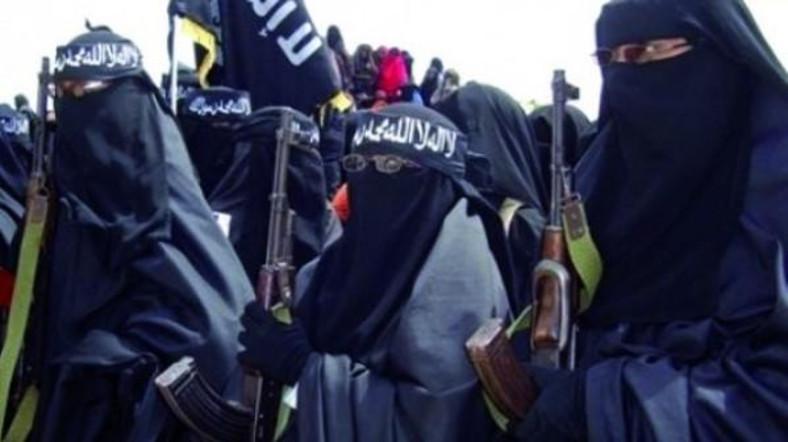Exoticizing ‘jihadi brides’ ignores that women can be terrorists too
By Ghada AlMuhannaWhile warfare has always been deemed a part of a man’s world, history has documented the participation of women in organized violence.
Photo: Courtesy Al Arabiya

Over the last few weeks, with ISIS losing more ground in Iraq and Syria, many captured members, who were sent to camps controlled by the Syrian Democratic Forces (SDF), are facing the reality of their choices. News agencies from around the world rushed to interview foreign fighters, who are asking their governments to take them back, and sensationalized the issue by referring to the women amongst them as “jihadi brides”. This characterization is not only false (like men, women are perfectly capable of being terrorists) but it can obstruct counter-terrorism and post-conflict development efforts.
The importance of women and the roles they play within terror groups are established facts within the security community. Their activities can range from carrying out suicide attacks to spreading extremist ideology and recruiting new members, depending on the group’s background and access to manpower. When it comes to news about terror groups, the media generally tends to focus on men’s political motivations for joining these groups, whereas it focuses on women’s personal backgrounds and how they have been tricked and fooled by recruiters into thinking the group they were joining would offer them a haven.
The media’s use of terms such as “wives” and “brides” indicates weakness and subordination among these women. And unbeknownst to them, these specific terms actually aid terror groups. The gender stereotypes and clichés that are perpetuated influence strategic decisions by terror groups and the behavior of female terrorists. For example, it is more likely for women to transport weapons than men, as they are less likely to be searched or suspected of being terrorists. This is especially true in areas where gender inequality is prominent. In addition, the media’s obsession with reporting on “jihadi brides” garners the attention of terror group sympathizers, romanticizing the idea of violent jihad.
However, this is not to say that all women involved in terror groups are terrorists. Some women, who were kidnapped by Boko Haram, for example, were used as suicide bombers against their will. And that is the main problem with radicalization – individual motivations to join a terror group can differ vastly. Personal relationships and social networks can factor into the decision, alongside personal beliefs, and to distinguish those who have radicalized ideologies from those who are mere victims of radicalized individuals requires a certain level of expertise. Therefore, it is dangerous to assume that all women are victims and that all women are terrorists.
The solution? We need more women to be involved in security and the peacekeeping process. There is also a need to conduct research into female terrorists and their behaviors. Women’s participation in terrorist activities is growing ideologically, logistically and regionally throughout the world. Unfortunately, there is not much research on the reasons why, and even less exploration by policymakers and international counter-terrorism actors in relation to terrorism and countering strategies.
More importantly, we need the media to be cautious while reporting on terrorist groups. If psychologists have been able to determine that something as simple as a headline can affect existing knowledge that is activated in one’s mind, then journalists calling female terrorists “jihadi brides” will most likely activate the image of a weak and helpless woman – an image that will not help in developing precise and effective strategies to counter terrorism, as it barely reflects the actual, more complex reality we’re in.
The article first appeared here